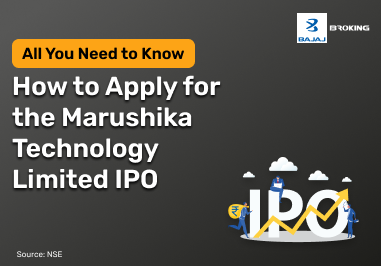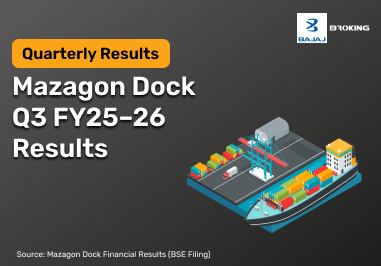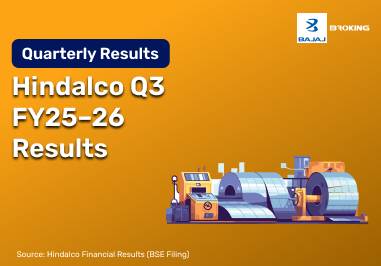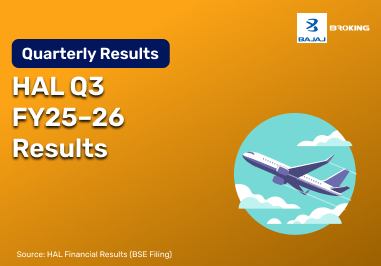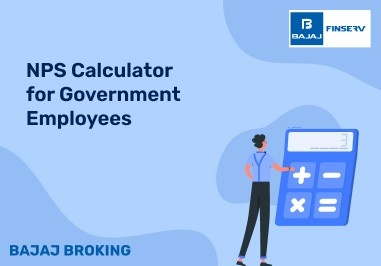Understanding IPO Share Allotment for Investors
After a company launches an IPO, investors place their bids and await for allotment of IPO shares. The IPO allotment process begins when interested investors submit their applications to buy shares. This application contains information like the number of shares one plans to buy and payment amount.
After the IPO window closes, all company stakeholders and underwriters review these applications. After this, eligible applicants will receive their desired number of shares in their respective Demat accounts provided that they are available.
To ensure that you are eligible to receive shares allotted during the IPO, you must place the bid within the specified price band. You can apply for IPO shares of the respective company through online or offline modes.
To participate in the IPO allotment process, you must have two things. You need a Demat account to store the shares you will buy and a savings account which is linked to a Demat account to make payments.
After investors apply for an IPO, two cases can occur that decide how shares are allotted. The first thing that may happen is that the number of bids is lower than the total shares offered to investors i.e., an undersubscription. In such instances, the company will transfer the requested amount of shares to every eligible applicant.
Alternatively, the applications can be more than the number of shares issued via an IPO, i.e., an oversubscription. To resolve this issue, the company requires the Registrar’s intervention. The Registrar must abide by SEBI’s guidelines to decide how to allot shares. A lottery system is used to determine the share allotment in this case.
IPO Allotment Rules
The allotment of IPO shares is governed by several important rules to ensure transparency and fairness in the distribution process. The Registrar, in coordination with the stock exchange and the Lead Manager, decides the IPO allocation process based on demand and investor categories such as Retail, NII, and QIB.
Key points:
Valid Applications Only
Only applications with accurate details (e.g., correct PAN and Demat account) are considered. Duplicate or invalid entries are rejected.
Cut-off Price
Applications submitted at or above the cut-off price are eligible for consideration during the allotment.
Category-wise Allotment
Shares are allotted within specific categories (Retail, NII, QIB). Over-subscription in one category cannot generally be adjusted using under-subscription in another without necessary approvals.
QIB Category Restriction
Shares not subscribed in the QIB category cannot be redistributed to other categories.
Basis of Allotment
A document is released by the Registrar detailing the final allotment and individual investor status based on the allocation criteria followed.
How Are Shares Allotted in an IPO?
The steps below will break down the IPO allotment process for your quick and easier understanding.
Step 1: Application process
To begin with, investors must first apply to buy IPO shares on the opening date. You can do so, via online or offline modes.
To apply for an IPO over the internet, all you need to do is register on a trading platform and search for the company issuing an IPO. Following this, you must enter the required details to bid for IPO shares. These details include your name, bid price, lot size and payment information.
Step 2: Allotment Process
After the closing date to accept bids ends, the issuer must move on to the next step, which is the allotment process. In this step, stakeholders and underwriters review each application and select investors who fit the eligibility criteria. Such bidders may receive their requested IPO shares at the end of the bidding process. Whereas, those applications that fail to fulfil this criteria will be rejected.
Step 3: Approval and Disbursal of Shares
This is the final stage of the IPO allotment process. At this point, the Registrar wraps up the allotment of shares and starts with disbursing them. Selected bidders will receive their requested shares in their Demat accounts.
Additional Read: IPO Allotment Status
What Happens After the IPO Allotment?
After the IPO allotment process is over, here are a few things that happen afterwards.
Credit for Shares
After allotment of IPO shares, companies credit shares to eligible applicants’ accounts. In case you are ineligible to receive shares, the company will refund your bidding amount to your registered bank account.
Listing on Stock Exchanges
After successful allotment of shares, they will be listed on stock exchanges like NSE or BSE. The company must fulfil certain mandatory regulatory norms for their respective stock exchanges for the listing process.
Trading Begins
After the listing is complete, the allocated shares are available for trading. Furthermore, investors can buy or sell these shares through online trading platforms or brokers. Owing to volatility of share market prices, the price of newly listed IPO shares might rise or fall.
Explain IPO Allotment Process with an Example
The IPO allotment process ensures a fair distribution of shares among investors. Here's a simplified example to illustrate how it works:
Imagine Company XYZ is launching an IPO with 10,000 shares available for allotment. They receive applications from 1,000 investors, requesting a total of 20,000 shares. Given that the demand exceeds the supply, the IPO allotment process will distribute the shares via a lottery system to ensure fair access. Each application has an equal chance in the lottery, meaning if you apply for 100 shares, you may or may not receive any shares depending on the outcome of the lottery draw. This random selection ensures fairness and equal opportunity for all applicants, regardless of the number of shares applied for.
How Does IPO Allotment Work for an Oversubscription?
In simple terms, oversubscription happens when there is a high demand for IPO stocks. This means investors have placed bids for a higher number of shares than a company is offering. This can make underwriters intervene and adjust a price to attract investors.
In case of an oversubscription, allotment of shares can affect allocation and trading. The IPO allotment processes and criteria might vary between categories of investors. The investor categories that will receive shares are as follows.
According to SEBI guidelines, if the number of retail investors placing bids is nearly equal to the number of lots that the company is offering, each applicant will get at least 1 lot. When the company cannot allot at least one lot of shares to each investor, a computer-based lucky draw system will determine who gets the shares.
Qualified Institutional Investors
Let’s understand this with a simple example where an automobile company’s IPO has been oversubscribed four times. If the investors have bid for 1,00,000 shares, they will receive only 25,000 shares of that company. A special feature of the QIB category is that investors are not allowed to withdraw their bids.
Also Read: Institutional Investors
High Net-worth Individuals
In this case, if there is an instance of oversubscription, individuals will be allotted a lesser number of shares than requested. The total shares that these individuals receive will be calculated as the total shares applied for divided by the number of times it is oversubscribed. The company must try to allot a proportional number of shares to each investor.
Also Read: Oversubscription in an IPO
Reasons for Not Receiving an IPO Allotment
If any IPO issuing company does not approve your IPO application, it will refund your bidding amount in your registered bank account. This process will occur after the allocation of shares is complete.
Here are some of the possible reasons that can cause companies to reject your bid for their upcoming IPO.
- If there is a large oversubscription, many companies plan a computerised lucky draw to choose winning investors. It might happen, that your name was not among those picked up at random in this programme.
- The company might also consider your bid as invalid in case of incorrect entries like the wrong PAN number, Demat account number or multiple applications from a single person.
- Companies also avoid allotting shares to investors with different PAN numbers for bank accounts, Demat accounts or UPI.
How to Check IPO Allotment Status?
The IPO allotment status can be checked online through multiple platforms, including the registrar’s website and stock exchange portals. Investors must have their application details ready to retrieve the status. The process is quick and helps investors confirm whether they have received shares under the process of IPO Allotment.
Steps to Check IPO Allotment Status:
- Visit the IPO registrar’s official website or stock exchange platform.
- Select the IPO from the list of available offerings.
- Enter essential information, including your Permanent Account Number (PAN), unique application reference number, or Demat Participant (DP) and Client Identification (ID) details.
- Click on “Submit” to view the allotment status.
- If the allocation is successful, the allotted shares will be transferred to the investor’s Demat account; otherwise, the refund process will be initiated for unsuccessful applicants.
Conclusion
Now that you know what IPO allotment is and how IPO allotment works, you are ready to commence your investment journey. In India, the IPO allotment process aims to treat all retail individual investors equally. Under this system, applicants will receive at least a minimum lot size depending on the availability of total shares.
However, in case of substantial oversubscription, it’s not possible to allot everyone shares. In this case, a computerised lucky draw system ensures that the allotment process is fair and just.
Also Read: IPO Cycle






